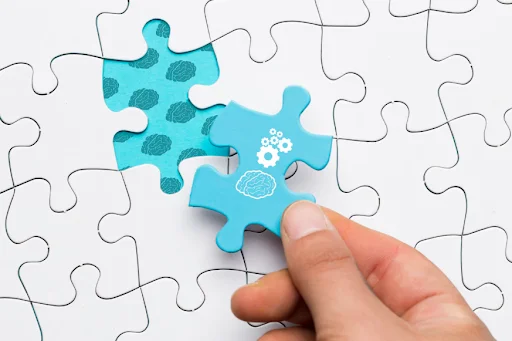It often starts small. Maybe someone forgets where they put their keys, or a familiar name just doesn’t come to mind. Most of us shrug it off — “I’m busy,” “I’m tired,” “everyone forgets sometimes.” But occasionally, those tiny slips aren’t just normal forgetfulness. Tools like the montreal cognitive assessment test exist to help spot early cognitive changes, catching patterns before they snowball into bigger concerns.
Think of a neighbor who keeps leaving the same grocery list behind or someone repeatedly asking the same question during a dinner conversation. At first, it might seem funny — maybe even endearing. But over weeks or months, patterns emerge that hint something deeper is happening.
Don’t stop here — explore a related story packed with new ideas!
Everyday Moments That Could Raise Red Flags
Routine forgetfulness can carry subtle signs that are easy to miss:
- Misplacing items frequently: Keys, glasses, wallets — even things you’d never expect.
- Losing track of conversations: Asking the same question repeatedly or forgetting key details.
- Difficulty with familiar tasks: Cooking, paying bills, or remembering appointments becomes confusing.
- Mood or personality changes: Irritability, withdrawal, or unusual anxiety can appear.
A real-life-style scenario: A woman noticed her father wandering around the house, forgetting chores he’d performed effortlessly for decades. Initially, she laughed it off. But after a few weeks, she realized this wasn’t typical. Early evaluation revealed cognitive changes, allowing the family to make adjustments before issues escalated.
Simple Daily Habits to Keep Your Brain Sharp
Keeping your mind healthy doesn’t have to be complicated. Small, everyday habits can make a real difference:
- Keep a routine: Following a regular schedule can calm your mind and make life feel more manageable.
- Challenge your brain: Read a book, do a crossword, or try a new hobby. Little mental workouts help your memory stay strong.
- Move a little: Even a short walk, some gentle stretching, or light exercise gets your blood flowing and supports brain health.
- Stay connected: Laugh, chat, or do activities with friends and family. Social connections are surprisingly good for keeping your mind sharp.
A family example:
One family started a nightly tradition they called a “memory game.” At dinner or before bed, they’d ask each other about the day, share little stories, and reminisce about old memories. It became something everyone looked forward to — fun, meaningful, and a gentle workout for their brains.
Real-Life Stories
Forgotten Names That Matter
A man kept forgetting his neighbor’s name. Initially, it seemed harmless, maybe even funny. But repeated lapses led his family to encourage an assessment. Early evaluation revealed cognitive changes, allowing support strategies to start before difficulties increased.
Kitchen Confusion
A lifelong cook left the stove on once — harmless that day. Over time, more small mistakes occurred. Her family implemented checklists, timers, and gentle reminders. It reduced stress, created safety, and helped maintain her independence.
Losing Track of Conversations
A woman who loved hosting book clubs began forgetting plot points or asking the same questions repeatedly. Instead of frustration, her friends adapted by summarizing gently and laughing together. The social engagement kept her mind active and preserved relationships.
The Human Side of Cognitive Changes
Cognitive changes ripple through everyday life. Families, friends, and routines are all affected. Humor, patience, and empathy are just as important as medical interventions.
Example: One couple laughed over forgotten words rather than arguing. That tiny shift turned potential frustration into shared amusement and strengthened their bond.
How to Support Loved Ones
- Listen first, correct later: Feeling heard is powerful.
- Encourage independence: Let them attempt tasks first, offering gentle support when needed.
- Track small changes: Notes can help healthcare professionals spot trends.
- Celebrate wins: Remembering names, completing tasks, or telling stories are all worth recognition.
Conclusion: Awareness, Compassion, and Action
Occasional forgetfulness is normal, but repeated, noticeable changes deserve attention. Early recognition, compassionate support, and professional evaluation — often using the Montreal cognitive assessment test — can change outcomes.
Small daily gestures, routines, and gentle conversations ripple outward, helping patients, families, and caregivers alike. Early action isn’t about fear — it’s about empowerment. With awareness, empathy, and patience, cognitive changes can be managed with care, respect, and humanity.
Don’t miss our featured story — trending and worth your time!

